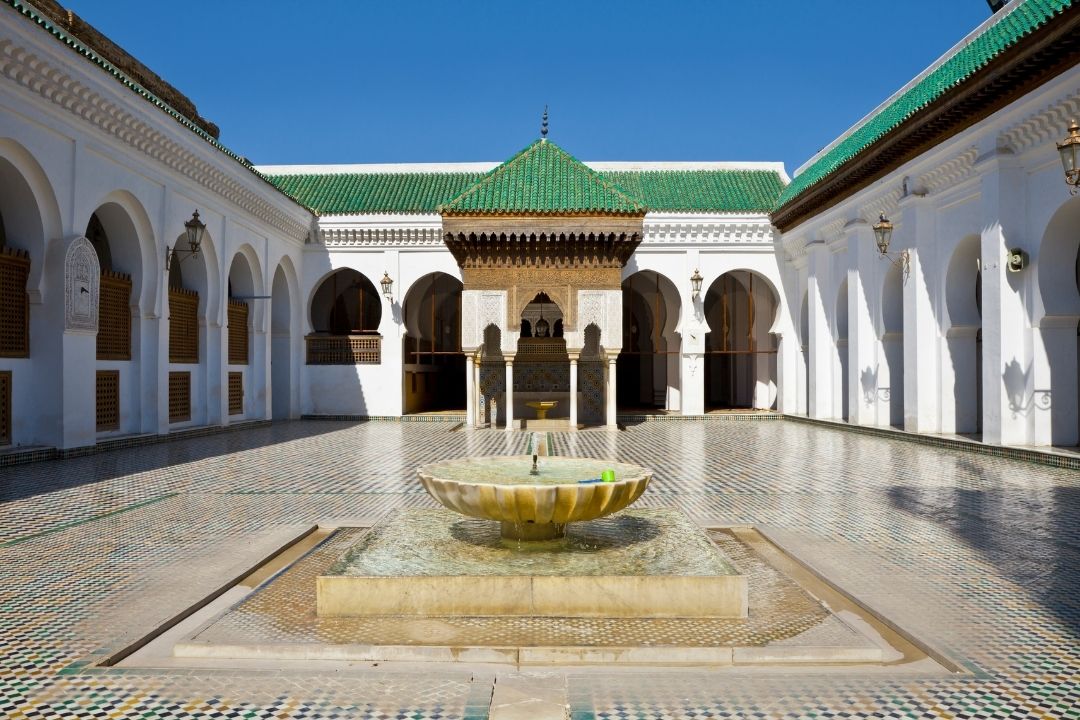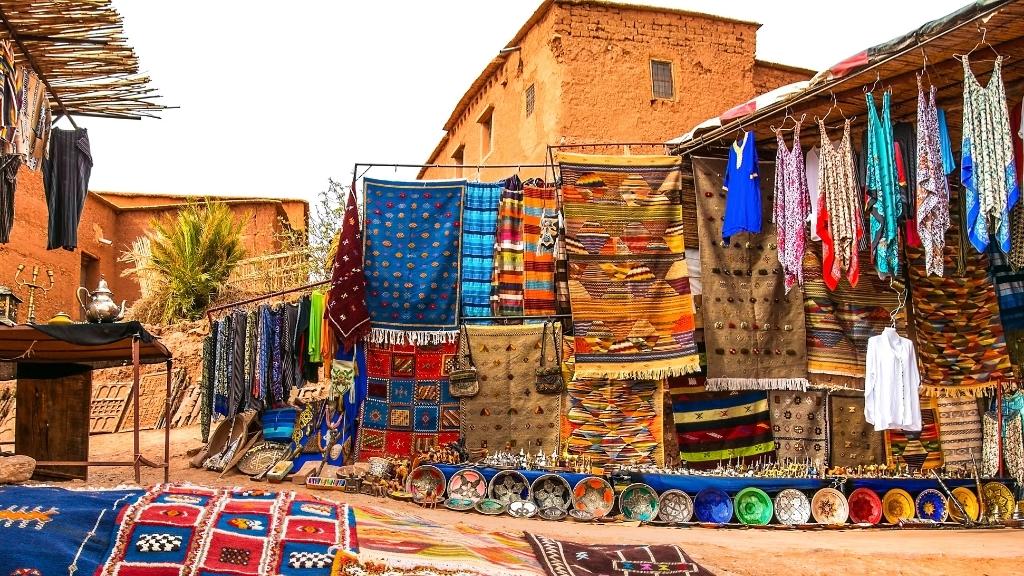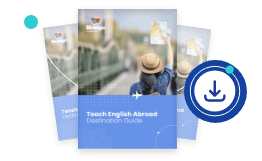Are you looking for a warm Mediterranean climate, rich history, and fascinating culture? Learn everything you need to know to teach English in Morocco and why this is an incredible destination for TEFL jobs.
Morocco is just a ferry trip away from Europe, so demand for English teachers is high, as many residents learn English for jobs in business and trade. With its blend of Mediterranean, African, and Islamic cultures, Morocco’s eclectic personality and diverse landscapes – mountains, deserts, bustling marketplaces, and romantic cities – offer English teachers and digital nomads endless things to do and places to explore.
If you’re new to teaching, you’ll want to get initial training and qualification with a TEFL certificate. You can explore our online TEFL courses to get started!
Learn how to effectively teach ESL to adults with this free eBook
Teaching English to Adults
DownloadWhat makes Morocco a great place to teach English?
Arabic and French have traditionally been the dominant languages in Morocco, but with increased opportunities in tourism, higher education, and business, the demand for TEFL teachers has grown.
English is taught to children in schools from the age of 10, and there are many opportunities to teach English at an academic level in universities. Morocco’s proximity to Europe also increases demand for Business English teachers.

Do you need a TEFL certification to teach in Morocco?
TEFL Certification
For most positions, a 120-hour TEFL qualification is required. The Bridge 120-hour Master TEFL Certificate meets the certification requirements to teach English and includes a job-advising module, resources, and support. The online, self-paced course covers a wide range of relevant EFL theories and applications.
To stand out as the most competitive candidate for English teaching jobs, consider the Bridge 150-hour International Diploma in English Language Teaching (IDELTOnline™), which exceeds the 120-hour TEFL certification requirements and earns students credit toward a pathway to an MA TESOL degree.
Degrees
A bachelor’s degree is required for all positions, as it’s necessary to get a visa to teach in Morocco. For some international schools and universities, a master’s degree may be required.
Prior Teaching Experience
Previous teaching experience will be required for most positions. If you are new to TEFL, volunteering as a teacher or a teaching practicum are great ways to gain experience.
A few great ways to get the required experience are by taking the 20-hour Guided Teaching Practicum or 60-hour Practicum in Teaching English Online TEFL/TESOL Specialized Certifications, or the 20-hour Teaching English as a Volunteer Micro-credential.
Visas
To work in Morocco, all foreigners must apply for a work visa. Most EFL teachers arrive in Morocco on a 90-day tourist visa and then interview for positions locally. When you have found a job, you can then transition to a work permit.
Morocco does not yet have a Digital Nomad visa, so remote workers can only work in Morocco within the 90-day tourist visa timeline.
How much can you make teaching English in Morocco?
The average salary for EFL teachers in a full-time position can range from $9,000 MAD – $25,000 MAD ($1,000 – $2,700) per month, with hourly rates of about $150 MAD – $300 MAD ($16 – $32). The highest-paid teaching jobs in Morocco are in international schools, where salaries can reach $35,000 MAD ($3,800), depending on qualifications and experience.
The good news for such a wide range of incomes is that, like most countries in Africa, Morocco has a low cost of living, so it is possible to earn a living as an English teacher and still save money for entertainment and travel.
Accommodation may range from about $1,500 MAD – $10,000 MAD ($160 – $1,000) per month, depending on number of rooms and distance to the city centers, and in-city public transportation costs around $8 MAD ($0.90), with weekly or monthly passes ranging from $60 MAD ($6.50) to $230 MAD ($25) respectively.
For digital nomads, there are coworking spaces for rent and also public coworking spaces, and some cafes offer high-speed internet, though internet connectivity may be less reliable in some locations.
Learn how to teach English online as a digital nomad.

Where can you teach English in Morocco?
While there are opportunities to teach English privately and as a volunteer, working in the public sector for schools or universities may provide better consistency to your role as an English teacher.
The typical teaching methodology in Morocco is still lecture-based, which can make it difficult for English teachers, particularly those who don’t speak their students’ language, to engage with students.
Teaching program options include:
-
Private language schools
-
State schools
-
Universities
-
Volunteering
-
Private tutoring
-
Business English
-
International Schools
The school year runs from September to June, and for those teachers who choose to teach at a school or university, there is an age restriction requiring them to be under 60 years old. Popular locations for TEFL jobs in Morocco include Casablanca, Agdal, Hassan, Marrakech, Rabat, and Tangier, and there are plenty of opportunities for non-native English teachers.
Some examples of institutions and programs offering paid work in Morocco include:
-
International School of Morocco, which is located in Casablanca. The well-respected school requires TEFL certification, previous teaching experience, and native English fluency. Multilingualism and a master’s degree are required.
-
AMIDEAST is a nonprofit organization with offices in Rabat and Casablanca that promotes education and development in the Middle East and North Africa. Its job postings page occasionally lists English teaching positions in Morocco.
-
The American School of Marrakesh requires all teachers to hold a BA or MA degree, a TEFL certification, and prior teaching experience.

What do people say about teaching in Morocco?
Bridge alum and EFL teacher Jennifer Collis shared,
“I was already an online teacher when I got hired to teach English abroad at a school in Morocco, so I kept my online job as a side gig. Since teaching online actually paid more than my in-person job, working just a few extra hours a week made it possible for me to worry less about money and focus more on traveling and experiencing the country.”
Teaching English in Morocco offers more than just a job; it’s a chance to live immersed in history, hospitality, and stunning diversity. Whether you’re teaching in a crowded city classroom, tutoring privately, or combining in-person and online work, Morocco’s welcoming culture and growing demand for English make it an inspiring destination for both new and experienced teachers alike.










